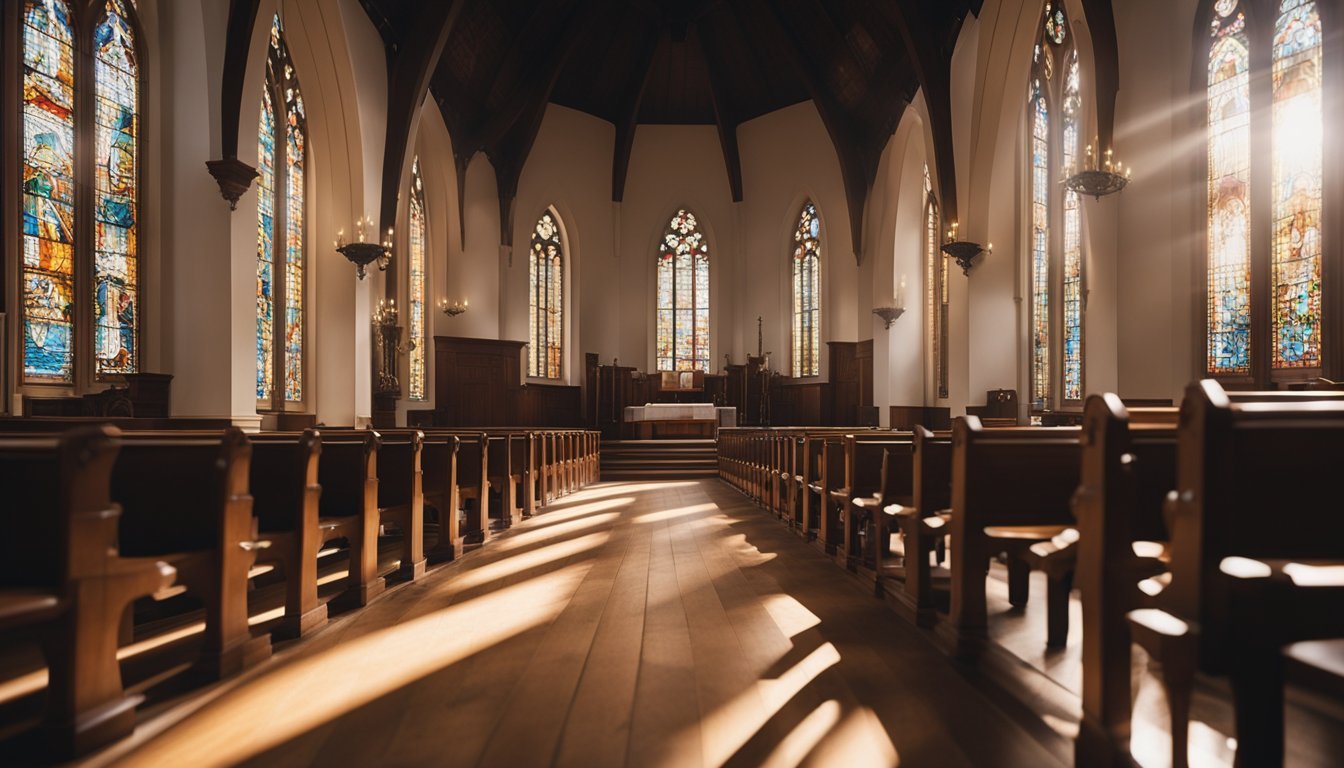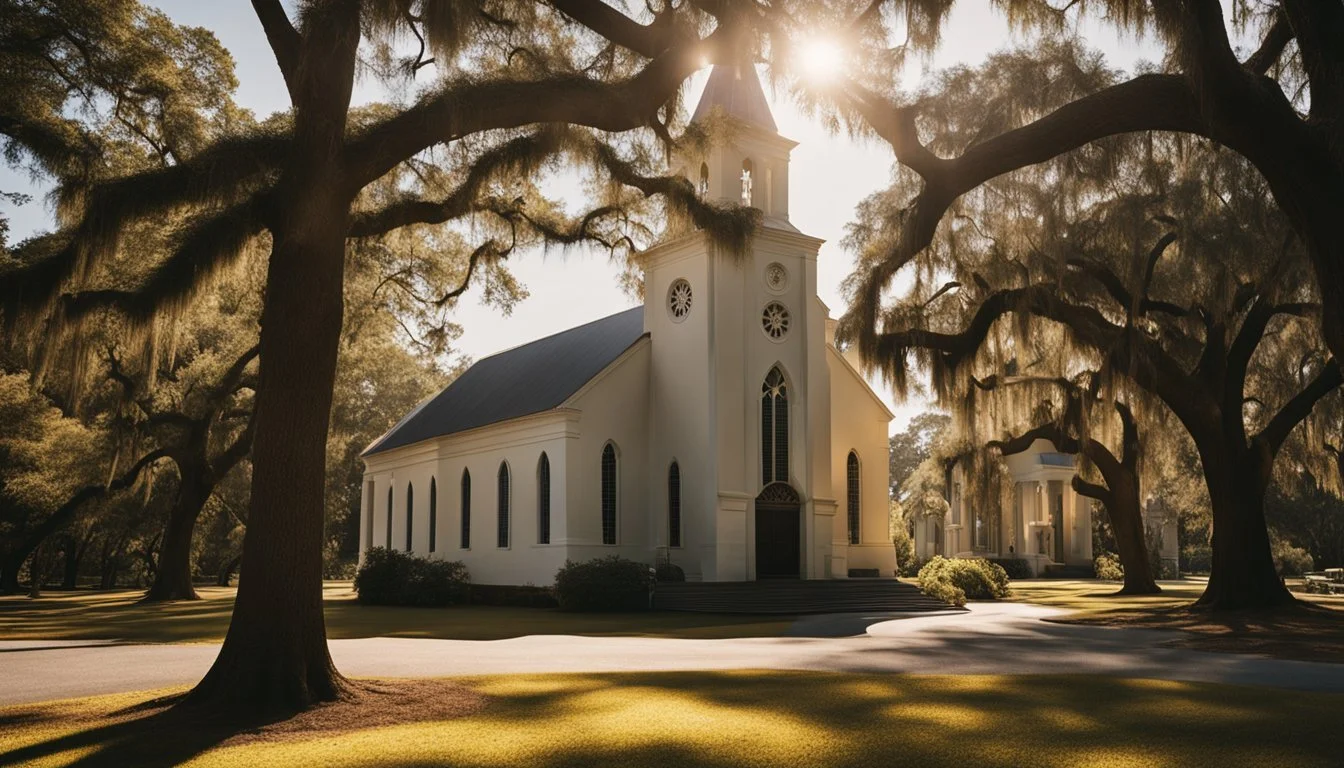6 Moving Documentaries About the Charleston Church Shooting
Exploring Tragedy and Resilience
The Charleston church shooting in 2015 deeply impacted communities across the United States. This tragic event, where nine African Americans were killed during a prayer service, sparked conversations about race relations, forgiveness, and faith. In the years since, several documentaries have explored the aftermath and lasting effects of this devastating incident.
These films offer powerful insights into the lives of survivors, victims' families, and the broader Charleston community. They capture the emotional journey of those affected, highlighting themes of resilience, healing, and the power of forgiveness. Through interviews, historical context, and intimate portrayals, these documentaries provide viewers with a deeper understanding of the event's significance and its ongoing impact on American society.
1) "Emanuel" by Brian Ivie (2019)
"Emanuel" is a powerful documentary directed by Brian Tetsuro Ivie that examines the 2015 Charleston church shooting. The film provides an intimate look at the tragedy that unfolded at Emanuel AME Church, where nine innocent worshippers lost their lives.
Ivie began filming a year after the incident, allowing time for healing. He conducted interviews at the church and in the homes of victims' families, capturing raw emotions and personal stories.
The documentary explores the impact of the shooting on the Charleston community. It highlights the unexpected response of forgiveness from some of the victims' families, which garnered national attention and sparked discussions on race relations.
"Emanuel" goes beyond recounting events, delving into the historical significance of the church and its role in the African-American community. The film presents a nuanced portrayal of grief, faith, and resilience in the face of hatred.
2) "Biafra: The Charleston Church Massacre" by Ebouaney Productions (2018)
"Biafra: The Charleston Church Massacre" offers a unique perspective on the tragic events in Charleston. The documentary, produced by Ebouaney Productions, explores the impact of the shooting on the Biafran community in South Carolina.
The film features interviews with Biafran-American residents of Charleston, shedding light on their experiences in the aftermath of the attack. It examines how the shooting affected their sense of belonging and safety in the United States.
Director Chika Anadu weaves together personal stories with broader discussions about race relations and gun violence. The documentary also delves into the historical context of the African diaspora in South Carolina.
"Biafra: The Charleston Church Massacre" received critical acclaim for its thoughtful approach to a sensitive topic. It premiered at the Pan African Film Festival in Los Angeles before reaching wider audiences through streaming platforms.
More information on "Biafra: The Charleston Church Massacre"
3) "Fighting Hate in Charleston" by National Geographic (2015)
"Fighting Hate in Charleston" examines the aftermath of the tragic shooting at Emanuel African Methodist Episcopal Church. The documentary highlights how the Charleston community responded to the horrific act with unity and forgiveness.
National Geographic's film explores the deep-rooted racial tensions in Charleston and the broader United States. It features interviews with survivors, family members of victims, and local community leaders.
The documentary delves into the history of the Emanuel AME Church and its significance in the African American community. It also covers the removal of the Confederate flag from the South Carolina State House grounds following the shooting.
"Fighting Hate in Charleston" showcases the resilience of the Charleston community in the face of tragedy. The film emphasizes the power of forgiveness and the ongoing struggle against racial hatred and violence.
More information on "Fighting Hate in Charleston"
4) "From Charleston to Mother Emanuel" by Channel 4 (2016)
"From Charleston to Mother Emanuel" offers a poignant exploration of the aftermath of the Charleston church shooting. Produced by Channel 4, this documentary examines the impact on the community and survivors.
The film features intimate interviews with family members of the victims. It provides a platform for them to share their stories of loss, grief, and resilience. Their personal accounts offer a powerful testament to the human spirit.
Channel 4's documentary also delves into the historical context of the Emanuel African Methodist Episcopal Church. It traces the church's significance in the African American community and its role in the civil rights movement.
The film examines the broader implications of the shooting on race relations in America. It explores how the tragedy sparked conversations about racial reconciliation and forgiveness.
"From Charleston to Mother Emanuel" stands out for its balanced approach to a sensitive subject. It presents multiple perspectives while maintaining respect for the victims and their families.
More information on "From Charleston to Mother Emanuel"
5) "Before and After Charleston" by PBS (2015)
"Before and After Charleston" examines the impact of the tragic shooting at Emanuel African Methodist Episcopal Church. This PBS documentary explores the aftermath of the event and its effects on the Charleston community.
The film features interviews with survivors, family members of victims, and local leaders. It provides insight into how the city came together to heal and address issues of racial inequality.
"Before and After Charleston" highlights the resilience of the congregation and the broader community. The documentary showcases efforts to combat racism and promote unity in the wake of the tragedy.
The film also delves into the history of Emanuel AME Church and its significance in the Civil Rights movement. It offers context for understanding the deep-rooted issues surrounding the shooting.
More information on "Before and After Charleston"
6) "The Charleston Massacre: Perspectives from the Community" by The Oprah Winfrey Network (2015)
This documentary offers a powerful exploration of the Charleston church shooting through the eyes of community members. The Oprah Winfrey Network produced this insightful film shortly after the tragic event.
The documentary features interviews with survivors, family members of victims, and local residents. It provides a platform for those directly impacted by the shooting to share their experiences and emotions.
Viewers gain insight into the tight-knit community of Charleston and the role of the Emanuel African Methodist Episcopal Church. The film examines how the community came together in the aftermath of the tragedy.
"The Charleston Massacre" also addresses broader issues of racial violence and gun control in America. It presents various perspectives on these topics from community leaders and activists.
The documentary's strength lies in its focus on personal stories and the resilience of the Charleston community. It serves as a touching tribute to the victims and a call for unity in the face of hatred.
More information about the documentary
Background of the Charleston Church Shooting
The Charleston church shooting was a tragic act of racial violence that shocked the nation. It occurred at the historic Emanuel African Methodist Episcopal Church in Charleston, South Carolina on June 17, 2015.
Historical Context
Emanuel AME Church, known as "Mother Emanuel," has deep roots in African American history. Founded in 1816, it's one of the oldest black churches in the southern United States. The church played a significant role in the civil rights movement and has long been a symbol of black resilience and spirituality.
Throughout its history, Emanuel AME faced oppression and violence. In 1822, the church was burned down after one of its founders was implicated in a slave revolt. It was rebuilt and continued to serve as a pillar of the black community in Charleston.
Timeline of Events
On the evening of June 17, 2015, a Bible study group gathered at Emanuel AME Church. Around 8:15 PM, a young white man entered the church and joined the group. He sat with them for about an hour before opening fire.
The gunman killed nine people, including the church's pastor and state senator Clementa C. Pinckney. Five individuals survived the attack. The shooter fled the scene, sparking a manhunt.
The next morning, authorities identified the suspect as 21-year-old Dylann Roof. He was arrested in Shelby, North Carolina, about 245 miles from Charleston. Roof later confessed to the killings, stating he wanted to start a race war.
Impact on the Community
The Charleston church shooting profoundly affected the local community and sparked nationwide discussions on racial violence and healing. The tragedy led to both immediate and long-lasting changes in Charleston and beyond.
Community Response
In the aftermath of the shooting, Charleston residents came together in a remarkable show of unity and support. Thousands gathered for vigils and memorials to honor the victims. Churches across denominations held special services focused on healing and reconciliation.
The city organized interfaith events to promote dialogue between different religious and racial groups. Many community organizations launched initiatives to address racial inequality and promote understanding. Local businesses donated to funds supporting the victims' families.
The Emanuel AME Church itself became a symbol of resilience. It reopened its doors for services just days after the shooting, welcoming all who sought comfort and solidarity.
Long-Term Effects
The shooting's impact continues to reverberate years later. Charleston implemented new policies and programs aimed at combating racial discrimination and promoting inclusivity. Schools expanded their curricula on African American history and racial justice.
The tragedy sparked difficult but necessary conversations about the lingering effects of racism in the community. It led to the removal of Confederate symbols from public spaces and renewed efforts to address economic disparities.
Many survivors and victims' family members became vocal advocates for gun reform and racial reconciliation. Their powerful testimonies of forgiveness touched people nationwide and inspired grassroots activism.
Annual remembrance events keep the victims' memories alive and serve as a call to continue working toward positive change in the community.
Representation in Media
The Charleston church shooting has been portrayed in several documentaries, sparking discussions about faith, forgiveness, and racial violence. These films have garnered varied reactions from audiences and critics alike.
Depictions in Documentaries
"Emanuel" stands out as a prominent documentary exploring the 2015 Charleston church attack. Directed by Brian Ivie, the film delves into the aftermath of the tragedy and highlights the power of forgiveness displayed by some victims' families. It features interviews with survivors and family members, offering a nuanced perspective on their experiences and emotions.
Another notable documentary is "An American Tragedy: The Story of Charleston Church Shooting." This film examines the events leading up to the shooting and its impact on the community. It includes archival footage and expert commentary to provide context for the tragedy.
Public Reception
The documentaries about the Charleston church shooting have generally been well-received by audiences and critics. Many viewers have praised "Emanuel" for its sensitive portrayal of the victims and their families. The film's focus on forgiveness has resonated with some, while others have appreciated its honest depiction of the varied responses to the tragedy.
Critics have noted the documentaries' ability to shed light on important issues surrounding racial violence and gun control. Some reviewers have commended the films for their balanced approach, presenting multiple perspectives without sensationalizing the events.
Public screenings of these documentaries have often been followed by community discussions, fostering dialogue about race relations and healing.




